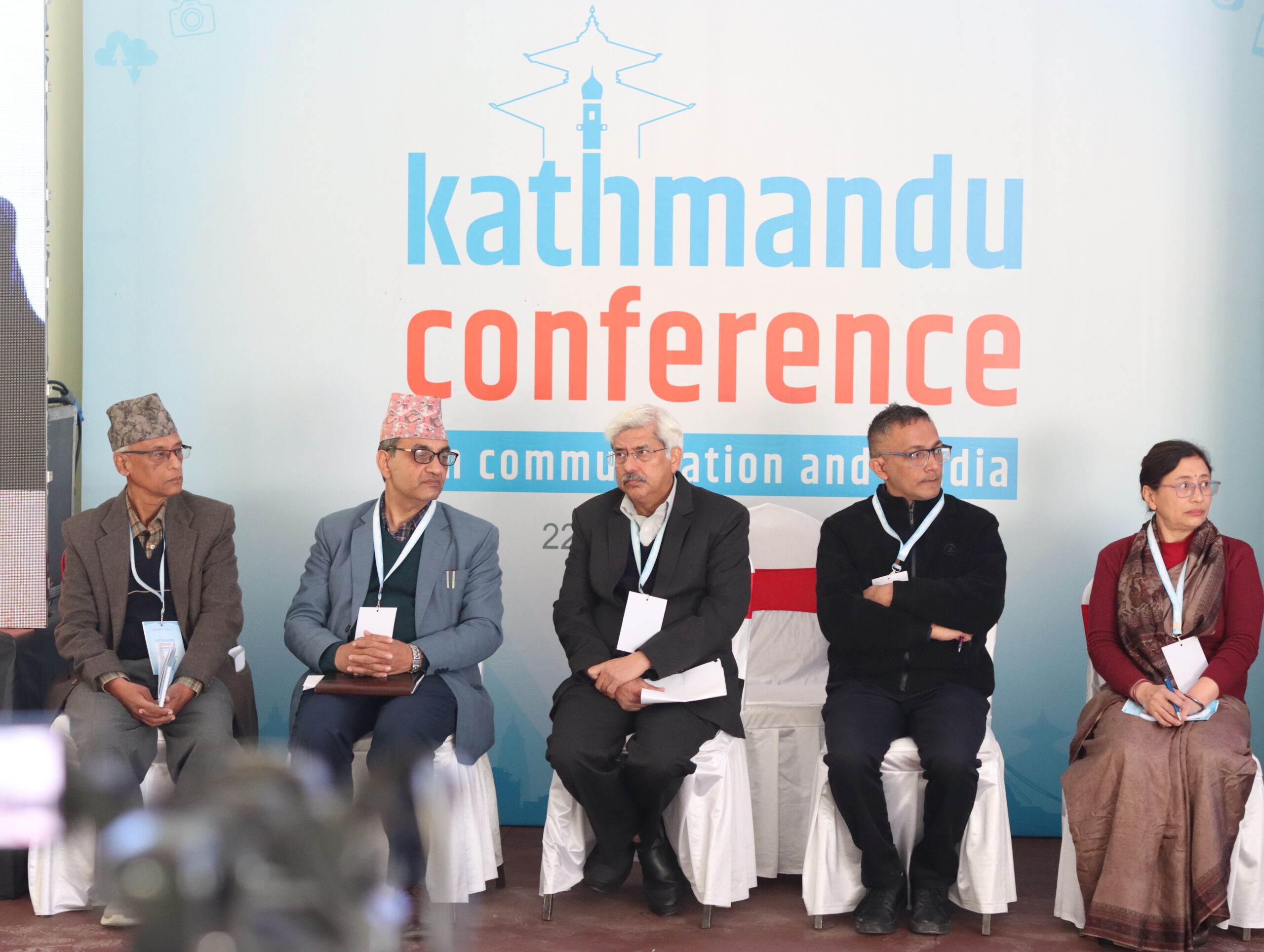The Kathmandu Conference on Communication and Media 2024, which brought together journalism scholars and media experts from four South Asian nations, concluded on December 23 after two days of intensive discussions on the challenges and opportunities presented by technological advancement and social media in mass communication.
The conference, jointly organized by the Center for Media Research – Nepal and Tribhuvan University’s Central Department of Journalism and Mass Communication (CDJMC) addressed pressing issues on information ecosystem, journalism and media in the digital era.
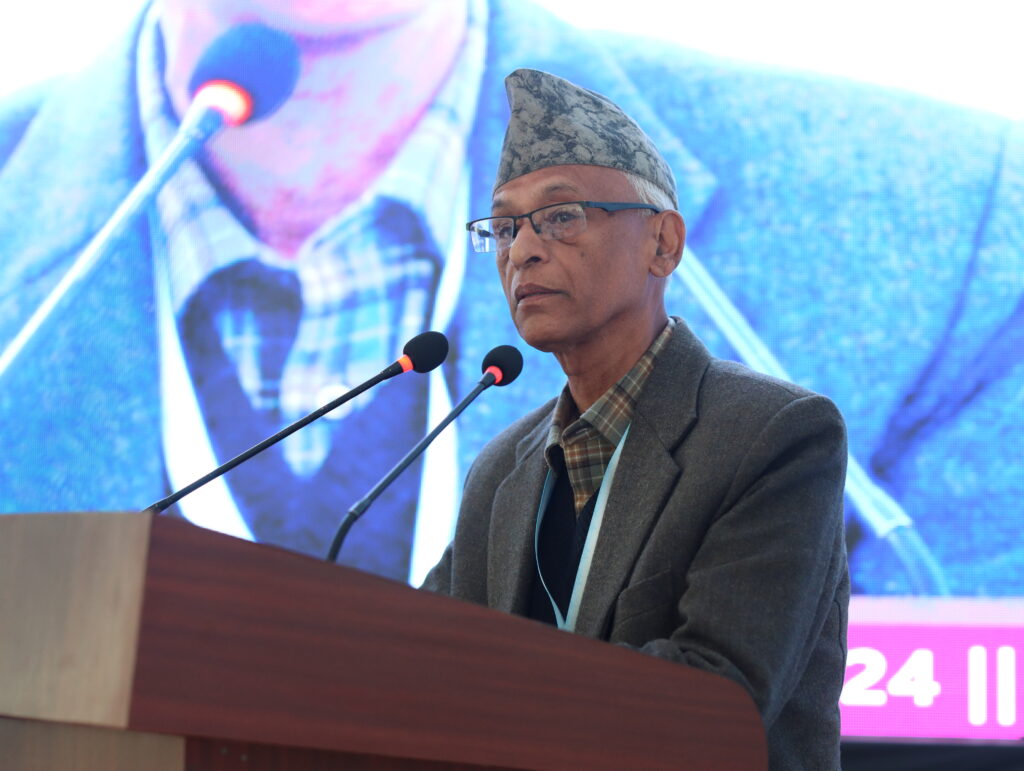
In his opening keynote address, Prof. P. Kharel highlighted an enduring challenge: despite technological advancement, ensuring fair and factual reporting remains difficult.
“The concept of verification and re-verification of information’s truthfulness existed during Buddha’s time itself; but these days one can find a significant number of non-verified news in the media,” Kharel noted, emphasizing the need for legacy media to adapt to digital technology while maintaining journalistic standards.
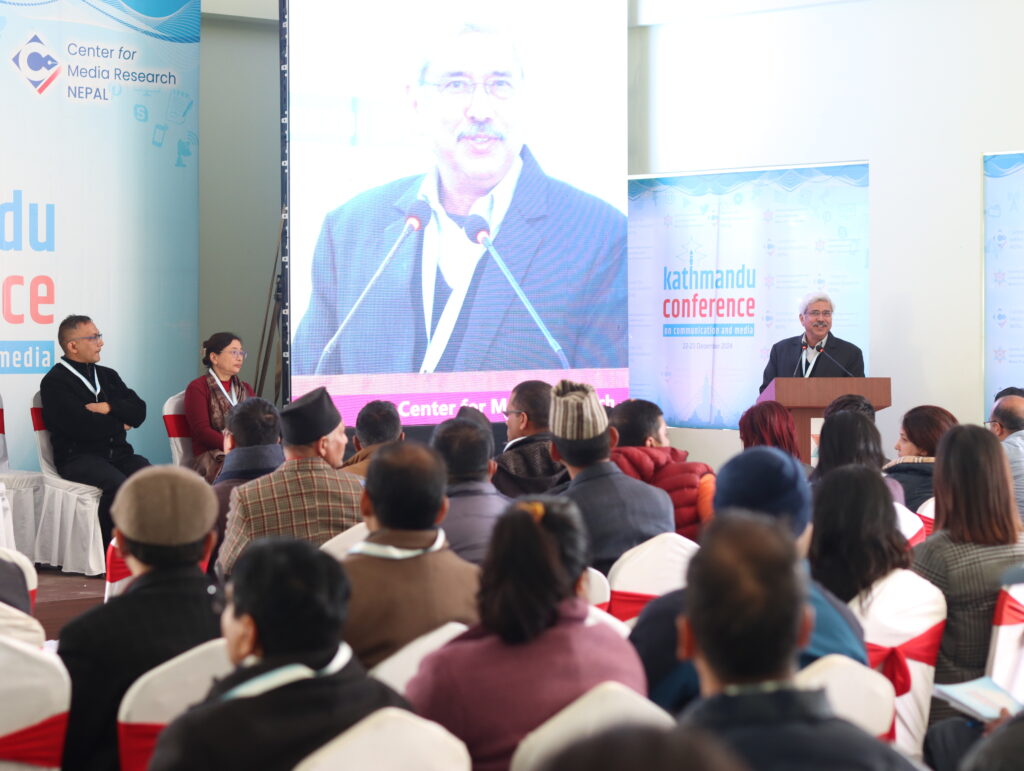
Dr. Kundan Aryal, Head of TU CDJMC, emphasized how today’s audiences are more active than ever, necessitating well-edited and verified news content. “The conference aims to promote closer linkages between readers and audiences and academic activities,” he stated.

Prof. Dr. Dubinanda Dhakal, the Dean of the Humanities and Social Sciene at the TU, inaugurated the conference during which Prof. Dr. Shobha Shrestha, Head of the Central Department of Geography at TU and a member of Conference’s scientific committee also delivered her speech.
The first day of the Kathmandu Conference featured three sessions of research presentations, offering insights into various aspects of media and communication in South Asia.
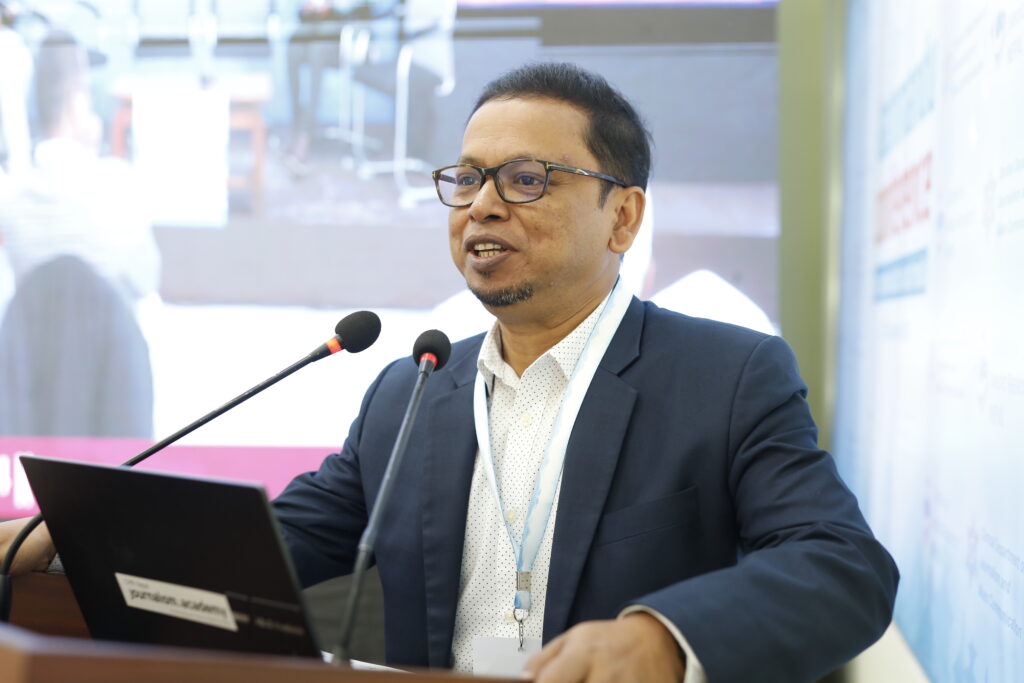
The day began with a special presentation by Prof. Din M. Sumon Rahman from the University of Liberal Arts Bangladesh, who explored “Nomadic Narratives: the Cross-Border Spread of Misinformation in South Asia.” His research highlighted how misinformation travels across national boundaries in the region, taking on new forms and contexts.
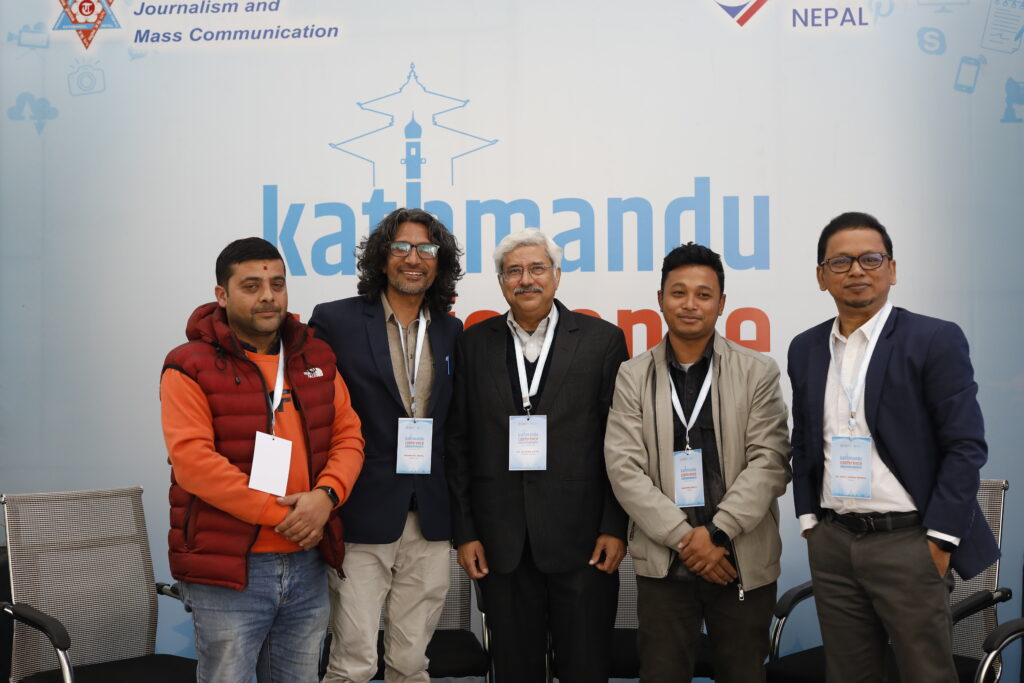
In the first session, chaired by Assistant Professor Rishikesh Dahal, researchers presented findings on digital media and international relations. Nilima Chandani Khan‘s study examined how Muslim minorities use social media for identity formation and community engagement. Sahayog Ranjit‘s research delved into how disinformation affects Nepal’s diplomatic relations with India and China. The session also included Sunil Paudel‘s analysis of media bias in newspapers and Bhuwan Bhandari‘s assessment of digital media literacy among college students in Nepal.
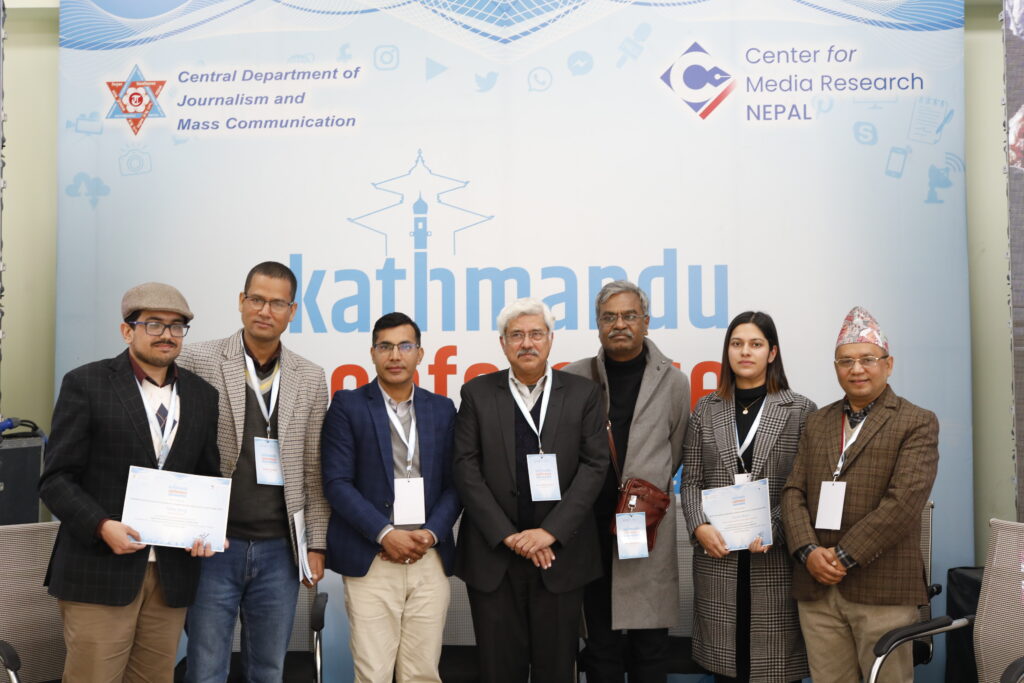
The afternoon session, led by Associate Prof. Dr. Nirmala Mani Adhikary of Kathmandu University, featured a special presentation by Anil Chamadiya from Media Studies Group, New Delhi, analyzing Indian media coverage of other South Asian countries. This was followed by Assistant Professor Lekhanath Pandey‘s examination of COVID-19 pandemic narratives in Nepali media and Rudra Khadka‘s study on communication and social change. CMR-Nepal research fellow Sudeep Uprety presented research on media’s role in spreading awareness about climate crisis and displacement, while Sitashma Mainali analyzed health news coverage in Nepali national newspapers.
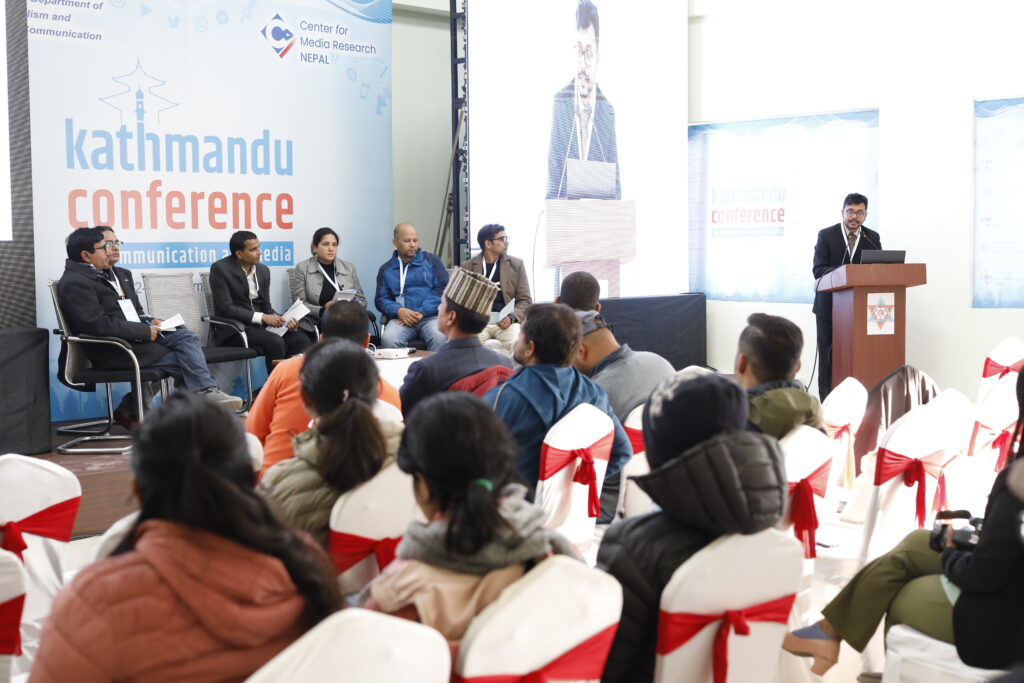
The day’s final session, chaired by Assistant Professor Dr. Ghama Raj Luitel, opened with H.A. Gayan Madushanka‘s presentation on data-driven media consumer behavior analysis. The session featured research on subnational media’s role in strengthening democracy by Injina Panthi, reporting patterns in Nepali print media by Tumaraj Koirala, local news coverage in regional newspapers by Ajay Sharma, and CMR-Nepal’s research fellow Shreeman Sharma‘s analysis of how Nepali newspapers frame transitional justice issues.
The research presentations highlighted emerging trends in media studies, particularly focusing on digital transformation, misinformation challenges, and the evolving role of media in addressing social issues across South Asia.
The second day’s panel discussions provided comprehensive insights into various aspects of contemporary journalism.

The first panel, moderated by journalist Namrata Sharma, explored strategies for combating misinformation in the age of AI, with fact-check editor Deepak Adhikari, IRI Nepal’s program manager Prema Thapa, and Communication Registrar of Bagmati Province Rewati Sapkota sharing insights on fact-checking mechanisms and AI’s role in both creating and detecting false information.
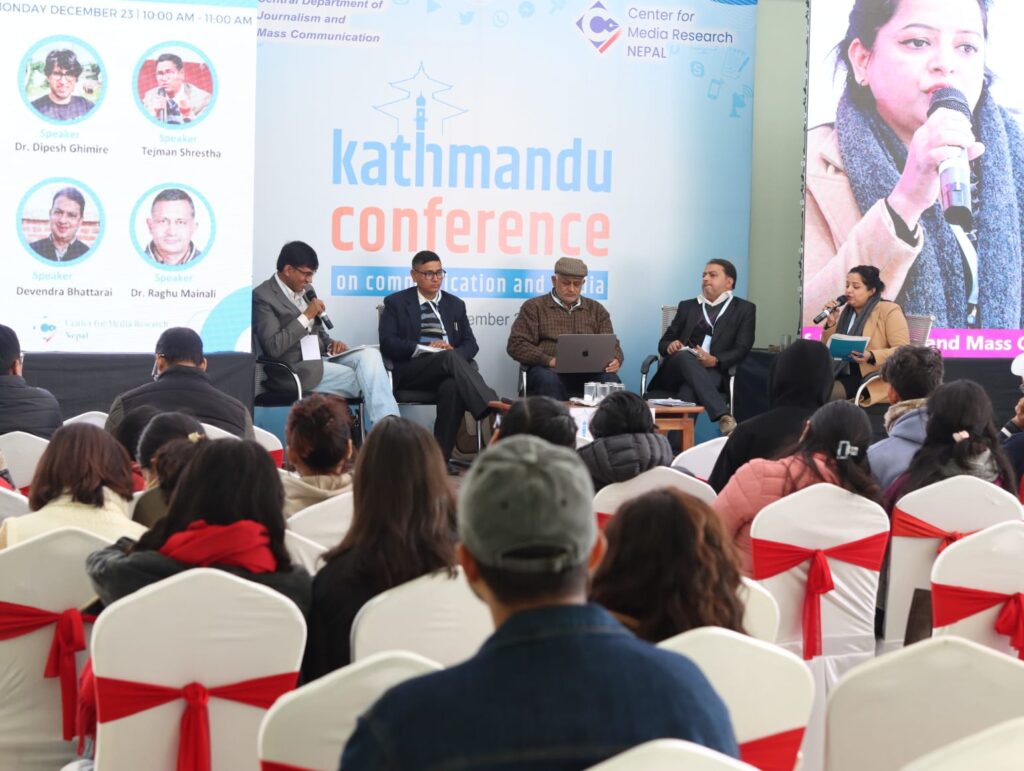
The second panel, led by award-winning investigative journalist Deepa Dahal, delved into media’s role in exposing and combating corruption. Panelists Assistant Professor Dr. Dipesh Ghimire of Central Department of Sociology, Assistant Professor at Nepal Law Campus Tejman Shrestha, editor of Ukaalo.com Devendra Bhattarai, and Course Professor at Nepal Open University Dr. Raghu Mainali discussed challenges journalists face while investigating corruption cases and the importance of investigative journalism in maintaining democratic accountability.
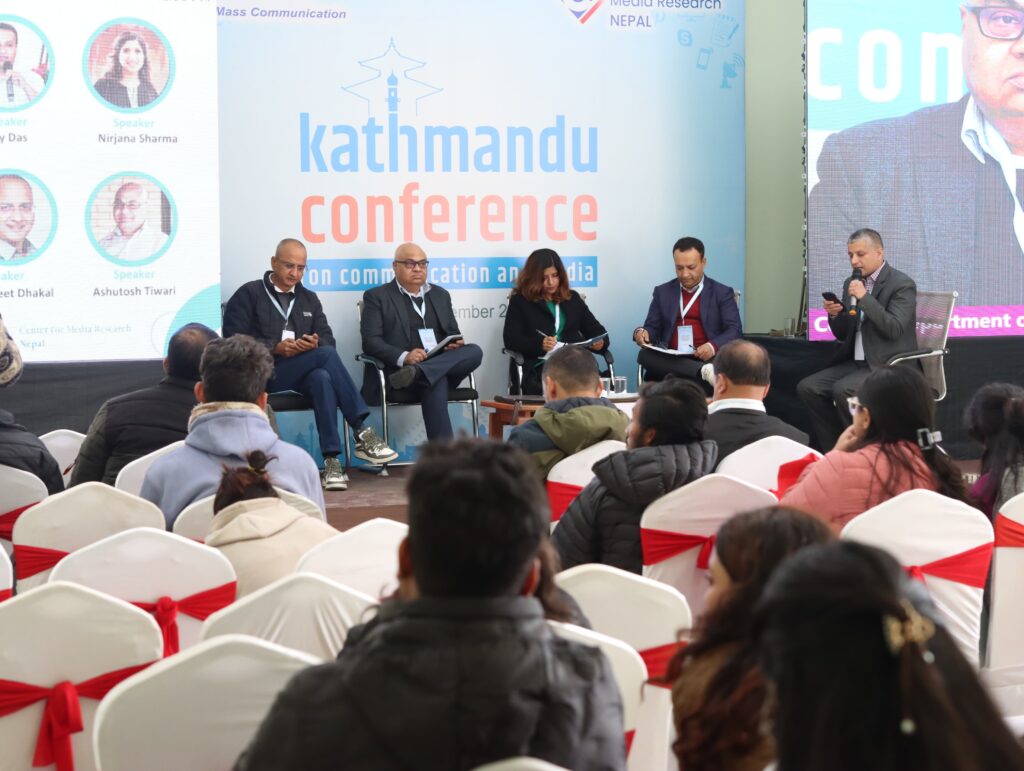
A critical discussion on making journalism financially viable followed, with Tilak Pathak, Executive Director of CMR-Nepal, moderating a conversation between Ajay Das, the Program Director at The Asia Foundation; Nirjana Sharma, the head of Communication and Information at UNESCO Kathmandu; Ameet Dhakal, editor-in-chief of Setopati.com and Ashutosh Tiwari, founder of SAFAL. The panel explored business models, challenges for sustainability and sustainable funding mechanisms for quality journalism in the digital age.
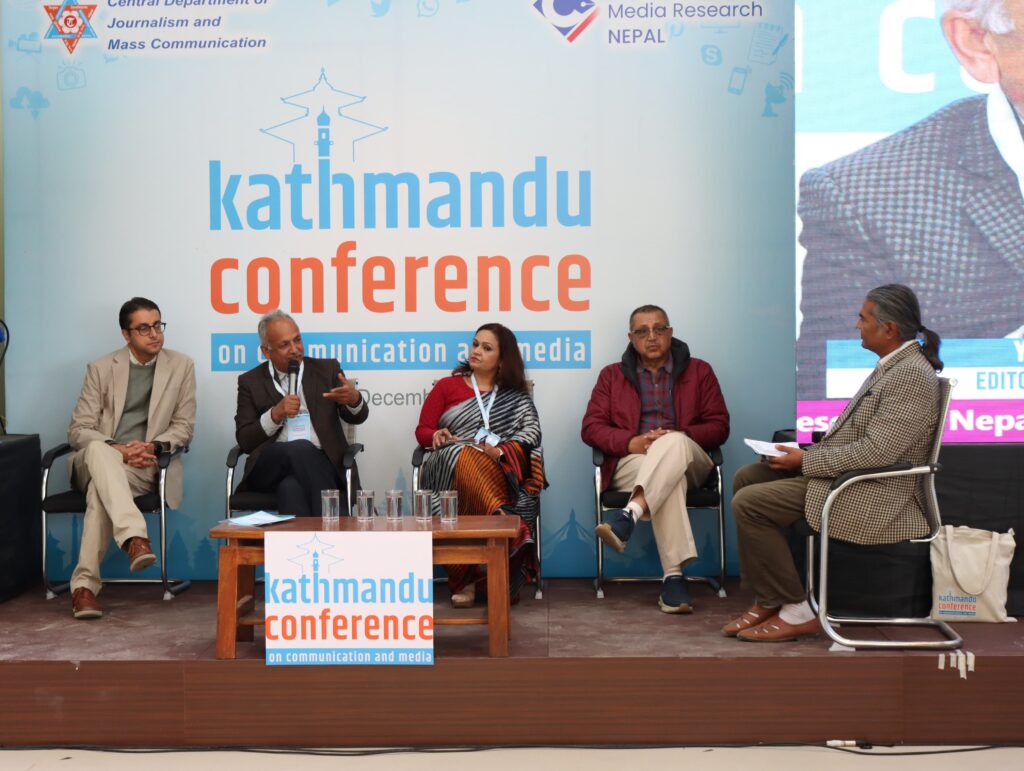
The fourth panel on the future of journalism, moderated by Assistant Professor Dr. Shreeram Paudel, featured prominent journalists including editor-in-chief of Deshantar.com Yubaraj Ghimire, chairperson of the Federation of Nepali Journalists (FNJ) Nirmala Sharma, editor-in-chief of The Kathmandu Post Biswas Baral and founder of Ujyaalo Radio Network Gopal Guragain.
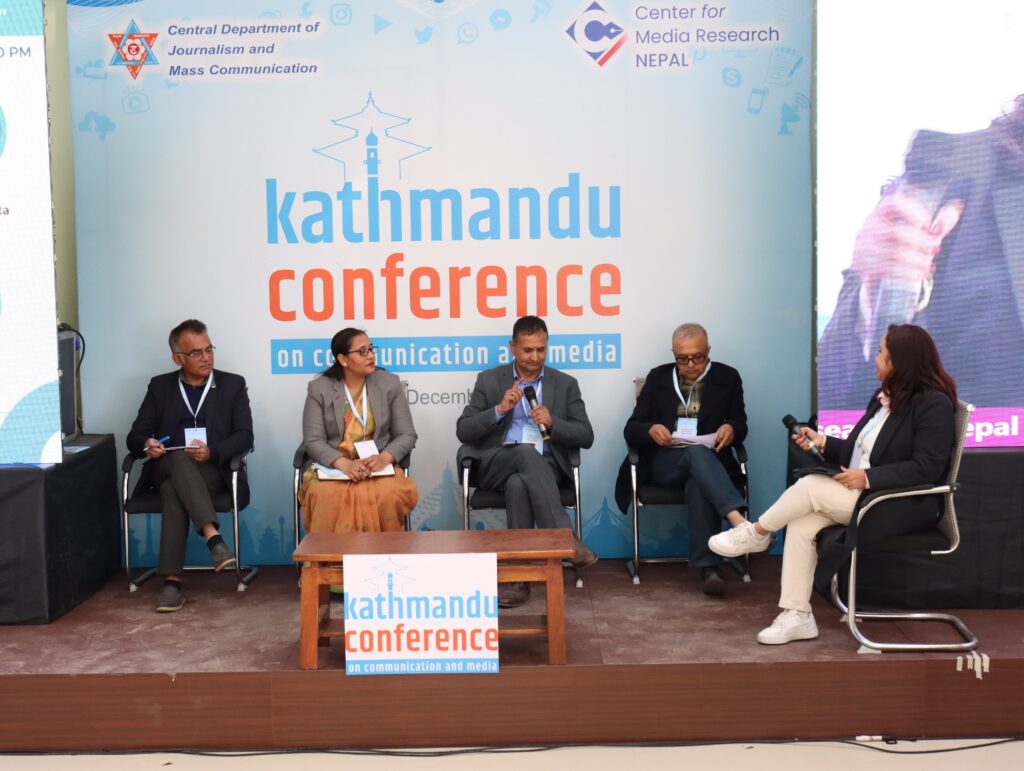
The final panel, led by Assistant Professor at North South University Bangladesh Dr. Samiksha Koirala, tackled the complex relationship between media and state. Executive Chairman of Public Service Broadcasting Dr. Mahendra Bista, chairperson of the Minimum Wages Fixation Committee Sangita Khadka, and experts Binod Bhattarai and Dr. Nirmal Rijal explored press freedom challenges, regulatory frameworks, and the balance between state oversight and media independence.
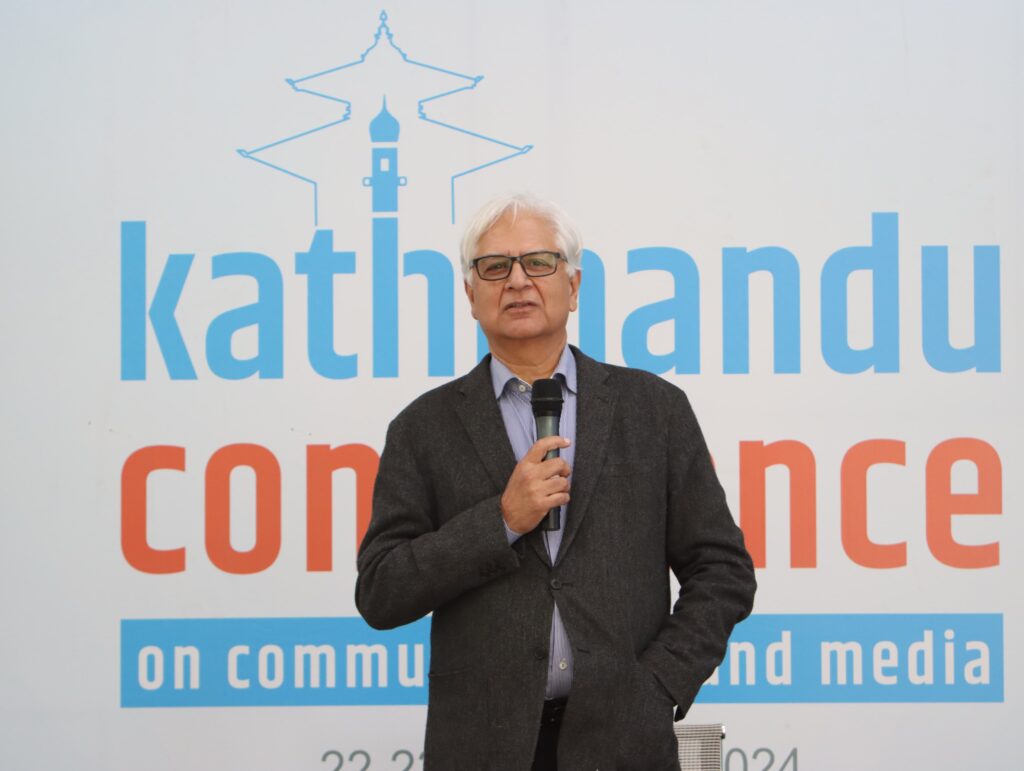
Between panel discussions, founder and former editor of Nepali Times Kunda Dixit delivered a special lecture on reforming media education, emphasizing the need to blend traditional journalistic values with modern technological skills.
The day also featured a parallel session on students’ research presentations where five students – four from CDJMC and one from St. Xavier’s College, presented their researches to international participants for suggestions and comments.
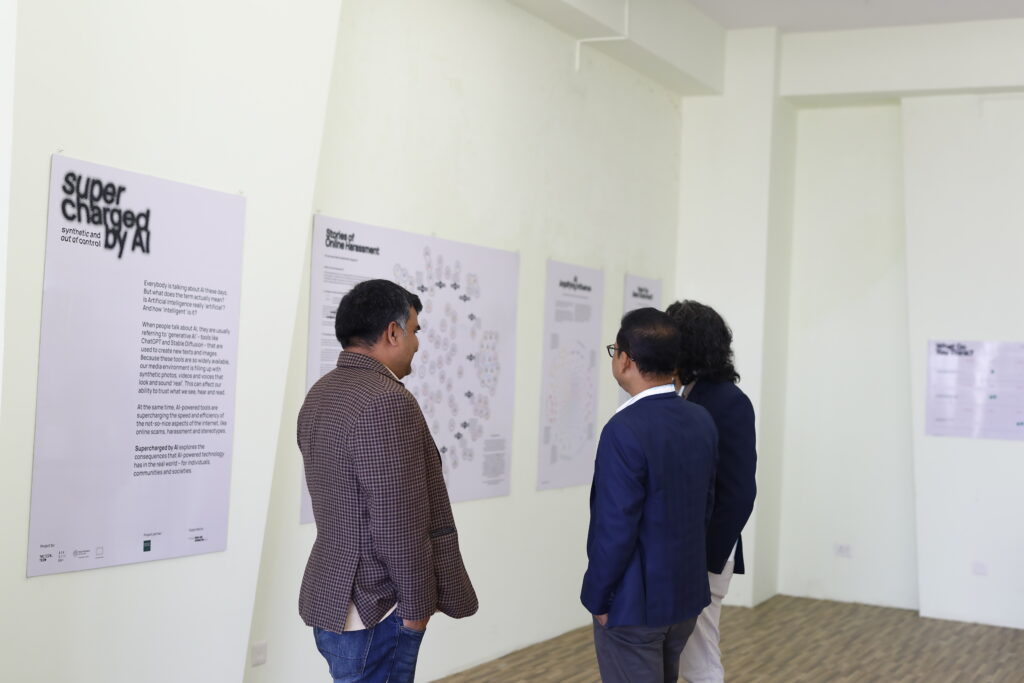
The conference also featured a special exhibition titled “Supercharged by AI – Synthetic and Out of Control,” exploring artificial intelligence’s impact on online lives. The exhibition was jointly organized by Tactical Tech and CMR-Nepal. Three research were presented as posters alongside the exhibition.
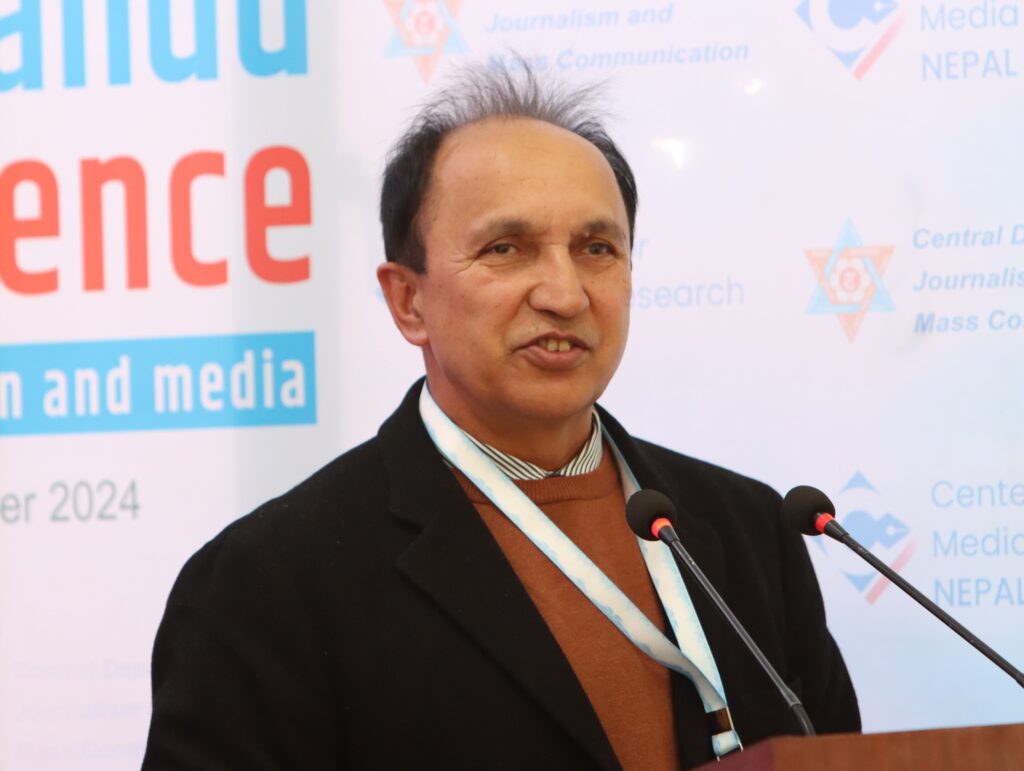
The event concluded with a keynote address by Tribhuvan University’s Rector Prof. Dr. Khadga KC, marking the end of discussions that brought together academics, journalists, and media experts from across South Asia to address the evolving landscape of journalism in the digital age.
More than 200 media educators, scholars and researchers from Nepal, India, Bangladesh, and Sri Lanka participated in the conference, which served as a platform for regional collaboration in addressing contemporary media challenges while promoting academic discourse on the future of journalism in South Asia.
To learn more about the conference, visit conference website.
